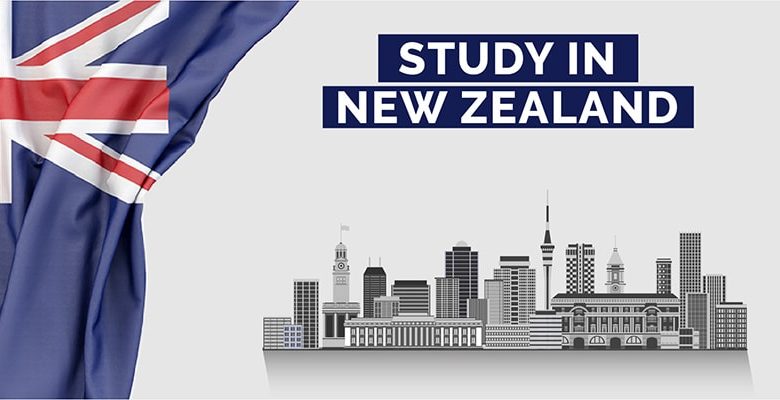Study in New Zealand: How to prepare financially?

The decision to study abroad has been made. The destination has also been chosen: New Zealand. Well, at least the first and most important steps are already taken. Now is the time to think about another key part: financial planning. What are the expenses when preparing for the trip? And during your stay in the country?
To help clarify these questions about studying abroad in New Zealand, keep reading this post. Follow up!
Pre-trip costs
The first concern of any international student after choosing the study destination should be the organization of expenses with preparations: passport, visa, medical exams, bank checks, insurance, air tickets, among others.
Passport
The passport issuance fee, if you do not already have one, is approximately R$260.00, and must be requested from the Federal Police, if you’re from Brazil. The scheduling of the interview and issuance of the ticket are made on the website.
Visas
New Zealand offers three main types of visas for anyone interested in studying, working or visiting the country (see our article on everything you need to know about a New Zealand visa for complete information). We will talk “over” them to quote the costs:
Tourist visa:
with a stay of up to 3 months only studying, without working, it is possible to stay in New Zealand without a visa. However, the traveler must prove that they have a minimum amount of NZ$1,250.00 for each month they stay in the country, or the amount of NZ$400.00 if the accommodation is already paid for. In the first case, and in the second, R$900.00;
Student Visa:
The online student visa application fee is NZ$270.00. As with the tourist permit, the student visa holder also needs to prove income: in addition to showing that he has NZ$1,250.00 for each month of stay, he must also provide bank statements that show this same value in the 6 months prior to the visa application date;
Working Holiday Visa:
the application fee costs NZ$165.00, and the bank account must have at least NZ$4,200.00.
Medical expenses
The student visa for up to 6 months requires a form called an X-Ray Certificate, accompanied by an X-ray and a medical report. For student stays from 6 months and the Working Holiday Visa additionally a General Medical Certificate is required.
All these documents must be provided and signed by a doctor accredited by the New Zealand government, that is, if your insurance does not cover consultations and exams with such professionals, these costs will be included in your budget!
Health insurance
Issuing insurance is critical to your security and required by New Zealand immigration. Values vary greatly according to plan coverage and length of stay. For stays of up to 3 months, the costs start from R$ 400.00, and for 1 year around R$ 1,500.00 to R$ 5,000.00.
The educational institutions themselves offer insurance options with the necessary coverage for their stay in the country. Look for a specialized agency that will help you with all the travel arrangements, including arranging the necessary insurance.
Airline tickets
This expense is usually a little higher compared to other destinations (such as the United States and Canada) due to the immense distance between South America and Oceania-New Zealand is literally on the other side of the world!!
It is not possible to determine the exact values, as tickets to New Zealand are extremely variable, but we will draw an average: round trip to Auckland, one of the main New Zealand cities and, consequently, one of the most sought after destinations, costs between R$ 3,500 .00 and BRL 8,000.00.
During your stay in New Zealand
OK, you already have an idea of the money you will spend before you travel. What about the costs of staying at the destination? How much do English courses, accommodation, food, public transport, shopping cost on average?
English courses
Once again, several factors affect the final value of the courses – school category (always choose a category 1 or 2 school), city in which it is located, workload, etc. To draw an average, let’s consider a 4-week course with 20 hours per week: it usually varies between R$2,500.00 and R$5,000.00. The longer you stay, the lower the cost of the course per week can be.
Accommodation
Depending on the agency you hire, the price of the exchange project may include accommodation in a homestay or in a student residence.
A good accommodation option for those who just want to travel around the country are hostels. Prices vary greatly depending on the type of room and location, but to give you an idea: using Auckland as an example, you can spend, on average, from R$1,000.00 to R$3,000.00 per month.
Depending on your traveler profile, you may prefer a single room at the hostel, or opt for shared accommodation with or without a private bathroom which can accommodate 4 to 20 people in the same room.
Food
When the student opts for a homestay, in general, food is provided by the hosts. Now, if you choose to stay in a hostel or a hotel, the most your rate will include breakfast (and not all of them do). Soon, you will need to cook your meals – don’t worry about the structure, because hostels have a shared kitchen, which can be used by guests.
Making your own food and leaving it to eat out only on special occasions, you will spend around NZ$65.00 to NZ$100.00 per week – once again, we reinforce that everything depends on numerous factors, such as how much you eat and what you like to eat, for example.
Transport
A great way to save money on exchanges in New Zealand is to get around using a bike or even walking. Depending on where your school, work and home are located, you won’t be traveling long distances – cities in New Zealand aren’t as big as Australia’s, for example. But if you choose public transport, you will spend an average of NZ$15.00 to NZ$50.00 per week.
Additional Information
Shopping
If you are an economic person, that is, you like to have fun, eat out, buy, but don’t spend a lot of money on it, you can take around NZ$ 1,500.00 that you can use in an average period of three months for purchases. But if you are the consumerist type, take around NZ$3,500.00.
Use of debit, credit and other cards
The use of cards abroad is always accompanied by conversion fees and taxes (IOF). In order to be prepared for such expenses, check the values of these fees in detail.
It is worth remembering once again that the values presented here vary greatly depending on the exchange student’s profile. In addition, it is very important to plan the trip in advance and with the support of experts, friends and family, so as not to leave anything behind.
Apart from this if you are interested to know about 6 Tips to Set Yourself Up for Successful Student then visit our Education category.



